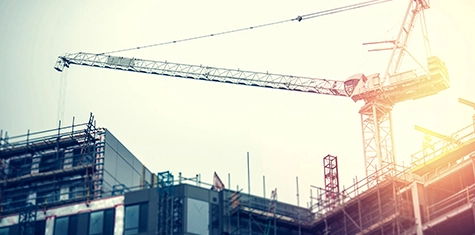By Rhiannon K. Baker and Philip S. Bubb
If the Coronavirus (COVID-19) has not yet affected your local construction projects, it will soon. Contractors have reported that the virus, and governmental responses to it, have affected construction projects in various ways:
- Labor shortage or inconsistent attendance due to worker self-quarantine;
- Interruption in back-office services as administrative personnel work remotely;
- Delays in material and equipment supply;
- Delays in issuance of permits and inspections;
- Scheduling and other delays
These impacts will likely cause some level of damages. Contractors may incur increased general conditions, higher material prices and potential directives to delay, accelerate or compress their schedules. Similarly, owners may experience increased financing costs, claims from buyers and tenants, and delays in completion.
The main contract provision that COVID-19 may trigger is known as a “force majeure provision.” Many construction contracts contain language that discusses unforeseen circumstances that excuse a party from performing some or all of its contractual obligations, typically for events outside of either party’s control. They may also be referred to as “Acts of God” or “other causes beyond the Contractor’s control,” as the AIA A201 describes them.
Delays caused by this pandemic may trigger a force majeure clause, depending on the clause’s language. When a force majeure clause is triggered, a party could be excused from performance and insulated from liability.
How should you prepare for potential construction industry impacts and damages of COVID-19?
- Become familiar with your contracts. Review the provisions of your contracts that discuss delays, claims and notice requirements. You will need to strictly follow contractual claim and notice provisions in order to protect your rights.
- Monitor impacts and communicate them to the other contractors and owner. The impacts you notice will change and likely increase as the pandemic spreads, and you should instruct your on-site personnel to report whatever impacts they see or can anticipate. Then, you will need to follow your contract’s notice requirements to promptly inform the other contractors or owner about the impact to avoid waiving your right to invoke the force majeure protections.
- Keep detailed records. Document everything. If you ever need to prove the extent or amount of your damages, careful records will help you successfully pursue or defend a claim.
- Mitigate your damages. Think carefully about the damages you anticipate incurring and consider ways to reduce those damages. Communicate your mitigation efforts to the other parties involved in the project.
- Consider your insurance coverage. Many policies won’t cover certain Acts of God or events that cause economic losses outside of actual damage to the project property. But certain business-interruption and other policies may provide an avenue for recovery. Careful review of the policy language is important.
Every contract and every project may need a different response and strategy. If you have specific questions about your project, please give us a call.


